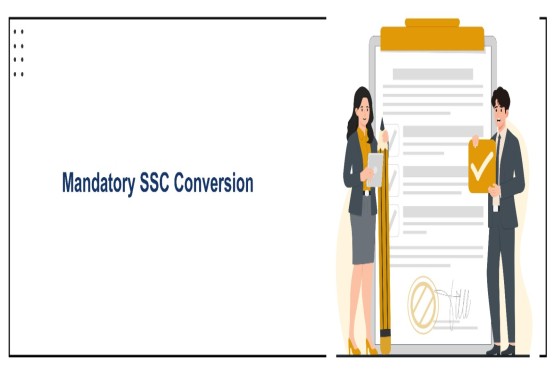The Finance Act, 2023 brought a transformative change in the way businesses deal with Micro and Small Enterprises (MSEs) in India. One of the most important updates introduced is the MSME 45 Days Payment Rule, under the newly inserted Clause (h) of Section 43B of the Income Tax Act. This rule mandates strict payment timelines to registered Micro and Small Enterprises to ensure that they are paid in a timely manner for goods or services delivered. The MSME payment rules are specifically designed to curb payment delays, which have historically affected the financial health and sustainability of small businesses.
This provision was applicable from April 1, 2024, meaning it was effective from Assessment Year (AY) 2024-25 and will impact payments relating to the Financial Year 2023-24 onwards. Businesses that do not comply with the msme payment within 45 days notification will face income tax deduction restrictions, which directly affect their profit and loss accounts.
Features of the MSME 45 Days Payment Rule
The MSME 45 Days Payment Rule has introduced clear guidelines on when payments to Micro and Small Enterprises must be completed to be eligible for tax deductions.
The rule provides that if there is a written agreement between the buyer and the MSME supplier, the payment must be made within 45 days. However, if there is no written agreement, the buyer is required to make the payment within 15 days from the date of acceptance or deemed acceptance of goods or services. This bifurcation ensures flexibility while promoting prompt payment practices under the msme payment rules.
In either case, non-payment within the prescribed timeline leads to disallowance of the expense in the year it was incurred. The expense will only be deductible in the year when the actual payment is made. This provision ensures that buyers are incentivized to clear dues to MSMEs quickly to retain their tax benefits.
Objective of Introducing Section 43B(h)
The primary purpose of introducing Section 43B(h) is to support Micro and Small Enterprises by improving their cash flow. MSMEs often face serious financial pressure due to delayed payments by large corporations or government entities. These delays lead to working capital shortages, forcing MSMEs to take loans at high interest rates or even shut down operations.
With the implementation of msme payment within 45 days notification, the government aims to create a disciplined payment ecosystem. It ensures that the lifeblood of India's economy—MSMEs—are paid promptly, so they can maintain consistent operations, expand their services, and contribute effectively to the economy.
Applicability of Section 43B(h)
The scope of Section 43B(h) is broad and includes any buyer who purchases goods or services from a supplier that is registered as a Micro or Small Enterprise under the MSMED Act, 2006. It is important to understand that the buyer’s registration status under the MSMED Act is irrelevant. What matters is that the supplier must be registered as an MSME.
This rule is not just limited to certain sectors but is applicable across all businesses that transact with MSMEs. Therefore, even large corporations, startups, and government departments must follow the msme payment rules while dealing with registered micro and small enterprises.
Exclusion of Traders from Section 43B(h)
Although the rule appears to cover all MSME transactions, it explicitly excludes traders from its applicability. This means that Section 43B(h) does not apply to payments made to wholesale or retail traders.
As per Office Memorandum No. 5/2(2)/2021-E/P and G/Policy dated July 2, 2021, traders can register under Udyam for the limited purpose of availing Priority Sector Lending benefits. However, they do not qualify as “enterprises” under the MSMED Act for the purpose of this tax deduction rule.
For example, if a business purchases goods from a registered trader under Udyam, it is not required to follow the MSME 45 Days Payment Rule, because the trader is not considered an MSME under this clause.
Effective Date and Transition Period
The MSME 45 Days Payment Rule becomes effective from April 1, 2024, which means it will apply to all transactions that take place during the Financial Year 2023-24 and onwards. However, any purchases or payments made before March 31, 2023, will not be covered under this provision.
This transition window provides sufficient time for businesses to restructure their payment practices, identify vendors who are MSME-registered, and create systems to ensure that dues are cleared within the prescribed time. It is important that businesses begin aligning their accounting processes to avoid disallowances during tax filings.
MSME Payment Timelines under Section 43B(h)
One of the important components of the msme payment rules is the strict timeline for making payments. These timelines are governed by Section 15 of the MSMED Act, 2006, which has now been linked to Section 43B(h) of the Income Tax Act.
There are two distinct scenarios:
-
No Written Agreement: In this case, the payment must be made within 15 days from the date of acceptance of goods or services.
-
With Written Agreement: If there is a written agreement, payment must be made within the agreed period, but this period cannot exceed 45 days from the date of acceptance or deemed acceptance.
If the buyer raises an objection in writing within 15 days of receipt of goods/services, the ‘day of acceptance’ is adjusted to the day the supplier addresses the objection. This framework ensures that both parties are protected, and payments are not indefinitely delayed under the guise of pending approval or clarification.
Real-Life Examples for Better Understanding
Let us understand the MSME 45 Days Payment Rule with real-life examples.
-
Example 1: Mr. A accepts goods from an MSME on 10-Feb-2024 with a written agreement of 45 days. Payment is made on 15-Apr-2024. Since the payment exceeds 45 days, the deduction will be allowed in FY 2024-25 when the payment is actually made.
-
Example 2: Mr. B purchases goods on 20-Aug-2023 and pays within 30 days. Since this is before the effective date of April 1, 2024, Section 43B(h) does not apply.
-
Example 3: A company buys goods on 5-June-2024 and pays after 60 days. Since the delay exceeds the permissible time, deduction is allowed in the year of actual payment, i.e., FY 2024-25.
These examples show how important it is to track payment timelines and ensure timely clearance of dues to avoid tax complications.
Penalties for Delay in Payments
Failure to comply with the msme payment within 45 days notification can result in serious penalties under the MSMED Act, 2006. The most notable penalty is interest on delayed payments, which is compounded at three times the RBI notified bank rate. This steep interest rate acts as a deterrent against delayed payments.
Moreover, this interest amount is not allowed as a deduction under the Income Tax Act, 1961. This means that not only does the business have to pay high interest, but it also cannot claim any tax benefit on this interest payment, making delays financially burdensome.
GST Implications in MSME Transactions
When calculating tax implications under Section 43B(h), one must also consider the GST component included in payments to MSMEs. The treatment of GST depends on whether it is claimed as Input Tax Credit (ITC) or not.
-
If GST is claimed as ITC: Only the base amount (excluding GST) will be disallowed under Section 43B(h) if not paid on time. GST is treated separately and claimed as ITC in books.
-
If GST is not claimed as ITC: The entire amount, including GST, is considered for tax disallowance if not paid within the prescribed timeline. This happens when GST is recorded as an expense instead of ITC.
Example: If Rs.1,20,000 is payable to an MSME, with Rs.20,000 as GST:
-
If GST is claimed as ITC, then Rs.1,00,000 is disallowed if unpaid.
-
If GST is not claimed as ITC, the full Rs.1,20,000 is disallowed.
Businesses must carefully structure their invoices and accounting records to avoid unexpected disallowances under the msme payment rules.
Impact on Capital Expenditures
Section 43B(h) is not limited to revenue expenses alone. It can also affect capital expenditure in certain cases. Though Section 37(1) deals with revenue expenditure, Section 43B covers both capital and revenue payments under specific scenarios.
If an MSME supplies capital goods that are eligible for deduction under Sections 30 to 36, the payments must also comply with the timelines under msme payment within 45 days notification to be eligible for deduction in the year of expense.
This includes capital investments in scientific research under Section 35AD, among others. Hence, timely payments are equally important for capital asset acquisitions from MSMEs.
Benefits of Section 43B(h) to MSMEs
The MSME 45 Days Payment Rule brings multiple advantages to small businesses across the country:
-
Improved Cash Flow: MSMEs now receive their payments within a fixed period, helping them avoid working capital crunch and financial distress.
-
Better Negotiation Power: The law strengthens the bargaining power of MSMEs during contract discussions with large corporations. Knowing that late payment leads to tax disallowance gives MSMEs more leverage.
-
Reduced Legal Disputes: Clear timelines lead to fewer payment-related disputes and litigation. This helps in maintaining smoother business relationships and reduces the cost of legal processes.
-
Encourages Registration: More small enterprises are likely to register under the MSMED Act to avail of these protections and benefits, thereby expanding the formal economy.
-
Tax Planning for Buyers: Large buyers can plan their taxes efficiently and avoid unnecessary disallowances by complying with payment timelines.
5 Key Takeaways for Stakeholders
-
MSME Payment Timeline: Payments must be made within 15 days (without agreement) or 45 days (with written agreement), or else the deduction will be deferred.
-
Effective Date: Applicable from April 1, 2024, impacting payments made from FY 2023-24 onwards.
-
Trader Exception: Rule does not apply to traders, only to manufacturers and service providers under the MSMED Act.
-
Interest on Delay: 3x RBI rate interest is applicable and not deductible under the Income Tax Act.
-
GST Component: Only the non-GST amount is disallowed if GST is claimed as ITC; otherwise, full amount including GST is disallowed.
Conclusion
The introduction of Section 43B(h) through the Finance Act, 2023 is a decisive move by the Indian government to improve the financial health of MSMEs. The MSME 45 Days Payment Rule enforces accountability among buyers, encourages timely payments, and offers much-needed stability to small businesses. While this may require larger enterprises to revamp their payment processes and accounting practices, the long-term benefits—both for MSMEs and the economy—are significant.
For businesses and entrepreneurs, now is the time to align payment systems, understand msme payment rules, and prioritize MSME dues to ensure compliance and avoid tax penalties. Register your MSME under the MSMED Act through a reliable compliance platform like Compliance Calendar LLP to take full advantage of this important regulatory change.
Email: info@ccoffice.in
Call/Whatsapp: +91 9988424211
FAQs
Q1. What is Section 43B(h) of the Income Tax Act?
Ans. Section 43B(h), introduced through the Finance Act, 2023, mandates that payments to Micro and Small Enterprises (MSMEs) must be made within a specific time frame—15 days (if no written agreement) or 45 days (if there is a written agreement). If the buyer fails to make the payment within this time, the expense will be disallowed in the current financial year and allowed only in the year of actual payment. This rule is applicable from April 1, 2024 (AY 2024–25).
Q2. To whom does Section 43B(h) apply?
Ans. Section 43B(h) applies to all businesses that purchase goods or services from suppliers who are registered as Micro or Small Enterprises under the MSMED Act, 2006. It is not applicable to suppliers who are medium enterprises or traders—even if the traders are registered under Udyam for other purposes.
Q3. What happens if a buyer makes a late payment to an MSME supplier?
Ans. If the buyer does not pay the MSME supplier within the prescribed period (15 or 45 days), the expense for that payment will be disallowed in the year it was incurred. It will be allowed only in the year when the actual payment is made. Additionally, the MSME supplier may also charge interest at three times the RBI rate, which is not deductible under the Income Tax Act.
Q4. Is Section 43B(h) applicable to payments made to traders?
Ans. No, Section 43B(h) does not apply to traders, even if they are registered on the Udyam portal. The rule only applies to manufacturers and service providers that qualify as Micro or Small Enterprises under the MSMED Act. This exclusion is clarified in the MSME Ministry’s Office Memorandum dated 2 July 2021.
Q5. What if the payment includes GST—does GST also get disallowed under Section 43B(h)?
Ans. If GST is claimed as Input Tax Credit (ITC) in the books, then only the base amount (excluding GST) is disallowed. However, if GST is not claimed as ITC and is treated as part of the expense, then the entire amount including GST will be disallowed if not paid within the specified period.
Q6. Is Section 43B(h) applicable to payments made before April 1, 2024?
Ans. No, Section 43B(h) applies to payments that are due or made on or after April 1, 2024, which corresponds to Assessment Year 2024–25 and Financial Year 2023–24 onwards. Any transactions or payments made before this date will not be affected by this provision.
Q7. What should businesses do to comply with Section 43B(h)?
Ans. To comply with Section 43B(h), businesses should:
-
Identify all MSME vendors registered under the MSMED Act.
-
Verify Udyam registration certificates to confirm MSME status.
-
Maintain written agreements with clear payment terms.
-
Ensure payments are made within 15/45 days, depending on the presence of a written agreement.
-
Update accounting systems to track MSME dues and timelines. Timely compliance will ensure tax deductibility of expenses and avoid disallowances under the msme 45 days payment rule.











































































_crop10_thumb.jpg)


































































_crop10_thumb.jpg)
_crop10_thumb.jpg)



_crop10_thumb.jpg)


_crop10_thumb.jpg)





_crop10_thumb.jpg)

_crop10_thumb.jpg)














-suratgujarat-section-158_crop10_thumb.jpg)
-suratgujarat_crop10_thumb.jpg)
-(33)_crop10_thumb.jpg)



-ahmedabad_crop10_thumb.jpg)
-learn_crop10_thumb.jpg)

-learnn_crop10_thumb.jpg)



























































_crop10_thumb.jpg)























_Guidelines_learn_crop10_thumb.jpg)























_learn_crop10_thumb.jpg)
_crop10_thumb.jpeg)









_crop10_thumb.jpg)




_Second_Amendment_Rules,_2025_learn_crop10_thumb.jpg)







_learn_crop10_thumb.jpg)












































_learn_crop10_thumb.jpeg)























_learn_crop10_thumb.jpg)



_rd_roc_learn_crop10_thumb.jpg)
















_learn_crop10_thumb.jpg)














_learn_crop10_thumb.jpg)
_Learn_crop10_thumb.jpg)











































_learn_crop10_thumb.jpg)




_learn_crop10_thumb.jpg)













_crop10_thumb.jpeg)


















